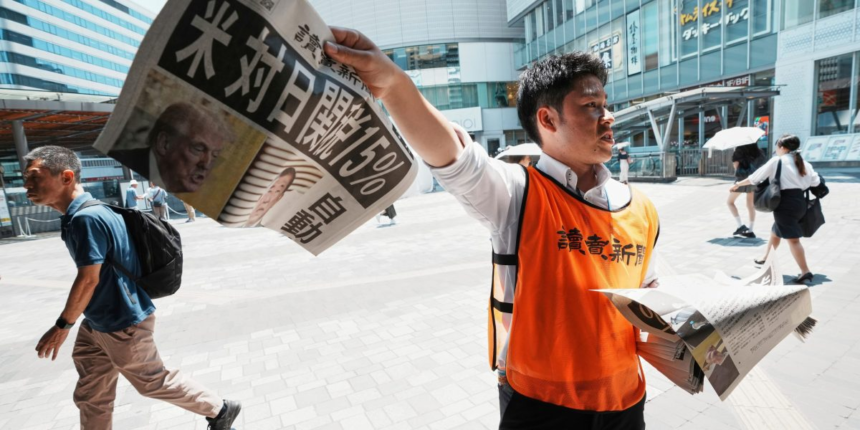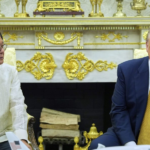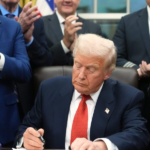President Donald Trump announced a trade framework with Japan on Tuesday, placing a 15% tax on goods imported from that nation.
“This Deal will create Hundreds of Thousands of Jobs — There has never been anything like it,” Trump posted on Truth Social, adding that the United States “will continue to always have a great relationship with the Country of Japan.”
The president said Japan would invest “at my direction” $550 billion into the U.S. and would “open” its economy to American autos and rice. The 15% tax on imported Japanese goods is a meaningful drop from the 25% rate that Trump, in a recent letter to Japanese Prime Minister Shigeru Ishiba, said would be levied starting Aug. 1.
Early Wednesday, Ishiba acknowledged the new trade agreement, saying it would benefit both sides and help them work together.
But the framework fits a growing pattern for Trump, who is eager to portray the tariffs as win for the U.S. His administration says the revenues will help reduce the budget deficit and more factories will relocate to America to avoid the import taxes and cause trade imbalances to disappear.
The U.S. ran a $69.4 billion trade imbalance on goods with Japan last year, according to the Census Bureau.
America had a trade imbalance of $17.9 billion with Indonesia and an imbalance of $4.9 billion with the Philippines. Both nations are less affluent than the U.S. and an imbalance means America imports more from those countries than it exports to them.
The president is set to impose the broad tariffs listed in his recent letters to other world leaders on Aug. 1, raising questions of whether there will be any breakthrough in talks with the European Union. At a Tuesday dinner, Trump said the EU would be in Washington on Wednesday for trade talks.
“We have Europe coming in tomorrow, the next day,” Trump told guests.
The president earlier this month sent a letter threatening the 27 member states in the EU with 30% taxes on their goods to be imposed starting on Aug. 1.
The Trump administration has a separate negotiating period with China that is currently set to run through Aug. 12 as goods from that nation are taxed at an additional 30% baseline.
Treasury Secretary Scott Bessent said he would be in the Swedish capital of Stockholm next Monday and Tuesday to meet with his Chinese counterparts. Bessent said his goal is to shift the American economy away from consumption and to enable more consumer spending in the manufacturing-heavy Chinese economy.
“President Trump is remaking the U.S. into a manufacturing economy,” Bessent said on the Fox Business Network show “Mornings with Maria.” “If we could do that together, we do more manufacturing, they do more consumption. That would be a home run for the global economy.”









